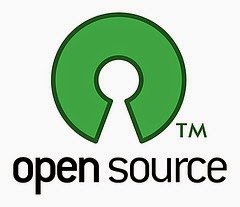Disclaimer: I'm not a security specialist; if you are running a webserver, please consider asking a qualified technician.
If last week you have been to Mars, maybe you haven't heard about the new security issue named ShellShock (CVE-2014-6271), claimed to be even more dangerous than HeartBleed.
In few words, it's a vulnerability in the Burn Again Shell (bash) in all Unix-derived systems (Linux, BSD and MacOS) [and maybe Windows too] that can be triggered via a remote call to a web server that uses CGIs. The following is a simple method to understand if your system is vulnerable (taken from here):
Run these two commands from a shell; if you read "busted", your system is vulnerable.
Obviously, the preferred targets for attacks based on this vulnerability are the webservers directly connected to internet. And this don't mean only those that run large companies websites, but also embedded devices, such as routers and IP cams.
This is true for many embedded devices but not for all; for this reason, if you own one of those, I suggest you to verify with the producer or by yourself, if you are skilled enough.
That said, this vulnerability can be tapped in five ways.
If last week you have been to Mars, maybe you haven't heard about the new security issue named ShellShock (CVE-2014-6271), claimed to be even more dangerous than HeartBleed.
In few words, it's a vulnerability in the Burn Again Shell (bash) in all Unix-derived systems (Linux, BSD and MacOS) [and maybe Windows too] that can be triggered via a remote call to a web server that uses CGIs. The following is a simple method to understand if your system is vulnerable (taken from here):
env X="() { :;} ; echo busted" /bin/sh -c "echo completed"
env X="() { :;} ; echo busted" `which bash` -c "echo completed"
Run these two commands from a shell; if you read "busted", your system is vulnerable.
Obviously, the preferred targets for attacks based on this vulnerability are the webservers directly connected to internet. And this don't mean only those that run large companies websites, but also embedded devices, such as routers and IP cams.
Embedded Systems: Not So Bad
Due to the limited power of the hardware, embedded systems usually don't have the standard bash binary but use the shell functions provided by BusyBox that is not vulnerable.This is true for many embedded devices but not for all; for this reason, if you own one of those, I suggest you to verify with the producer or by yourself, if you are skilled enough.
Webservers: Pretty Bad
I'll assume that your system is correctly configured: since this vulnerability does not involve privilege escalation, all the commands being executed by the exploiter will run with the same privileges of the webserver application and its CGIs. Of course, if Apache is running with root permissions, you are in big troubles even if your system is not vulnerable, but this is a different story.That said, this vulnerability can be tapped in five ways.
- Making the server slow or unavailable, for example running busy loops or filling the memory with an infinite series of forks.
- Stealing your data (restricted pages on the website and databases).
- Deleting all data accessible from webserver and CGIs (webpages and databases): you can mitigate this risk with frequent backups.
- Being used for a DOS attack against other sites.
- Injecting malicious scripts or redirecting the visitors to malicious sites. This is the worst scenario: with sed or awk it is quite simple to change every HTML page (but also JavaScript files or Python CGIs) to inoculate code that can take advantage of some browser vulnerability - or simply deface your homepage.
To add some more fear, some of the above can be combined to increase the damage.
Conclusions
ShellShock is a vulnerability that should not be underestimated but probably it's not so bad as it has been reported. Many embedded systems, that are more likely to not receive an update, are not affected. And nowadays many technologies other than CGI are used.
Now, if you are asking if there is something that average people can do to mitigate the risk, you'll have to read this post for the answer.
Now, if you are asking if there is something that average people can do to mitigate the risk, you'll have to read this post for the answer.

















